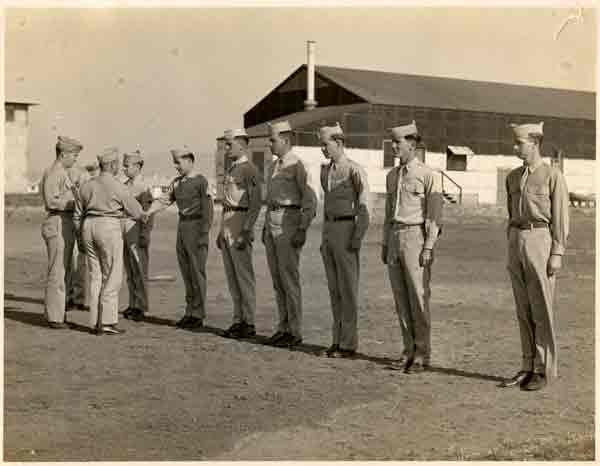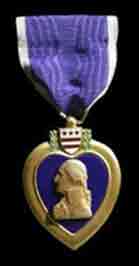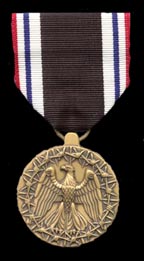|
My father was born in Carbondale, Pennsylvania, a small
former mining town just west of Scranton. His older brother James enlisted in
the Navy on April 9, 1940 and was
stationed at Pearl Harbor December 7, 1941. As most young men of the time
were,
my father was
anxious to join in the war effort and enlisted as soon as he was eligible, November 19,
1942, at age 17. Having never ventured more than a few miles from his
small home town, my father was about to begin what was to him a most
exciting journey.
My father underwent training in Fresno, CA, Las Vegas, NV and Amarillo, TX.
Having
undergone basic training, the 466th Bombardment Group (Heavy) crews began to assemble in Alamagordo, New Mexico. My father had become a member of pilot
Harry Sturdevant's crew number 413, arriving in Alamagordo from Clovis, NM
on the 3rd of December, 1943. The ten man crew included the pilot,
Harry E. Sturdevant, Co-Pilot William E. Williams, Bombardier Thomas M.
Twisdale, Navigator, Raymond Zielinski, Radio Operator David G. Somerville,
Engineer Noble F. Garner, Left Waist Gunner, Harry R. Rohne, Right Waist
Gunner Perry J. Snyder, Tail Gunner Gene Gardner and Bottom Turrent Gunner,
William F. McMyne.
My father was not a large
man, 5 feet 8 inches tall and of medium build, making him a likely candidate
for his role.
| |

4th from the left.
|
A contest was held
to name the group, with M/Sgt. Gerard DIeffenbach winning $10 for his
submission naming the group the "Flying Deck", with each squadron
represented by a different suit. My father's Red Squadron (784th)
were Clubs, along with the the Gold (785th) Diamonds, the Blue (786th)
Hearts and the White (787th) Spades. Along with the other crews,
Crew 413 trained hard throughout December and January. The
466th passed the Preparation for Overseas Movement (POM) inspection in
January, 1944, and were commended by the Second Air Force for being the
first group to pass that inspection on the first pass. Now it was
time to put that training to work. |
| |
Along with most 466th
crews, Crew 413 flew to Herrington, Kansas for final processing before
heading overseas. From Kansas, they flew to Morrison Field in West
Palm Beach, Florida. In the first letter I have from my Father to
his mother (whom everyone called Babe and I will refer to as Grandma
Babe) he wrote,
"We took off from Herrington at 9:50 this morning
and arrived here at 4:10. We really move around don't we. I
won't be here as long as I was in Kansas so if you don't hear from me
for a little while don't let it worry you. I'll just be flying
around some place. We had a swell trip and saw a few places I
haven't seen before and I really enjoyed it. I guess I've seen
about all there is to see in the states now...
I guess I told you that
starting April 1st youíll get $50.00 a month... If you need
it use it. If not just put in the bank in my name and your name then you
can get it if you want it."
|

Far right. |
| |
 \ \
First in line on the
left. |
From Florida,
typically the crews headed for Trinidad. (In a later letter home,
my Father mentions having been in Puerto Rico, but I am not sure if this
was an additional stop or a stop in lieu of Florida or Trinidad.
Crew accounts in the Attlebridge Diaries mention brief, and probably
unauthorized, site seeing stopovers on other Islands on the way to
Trinidad. This was an important leg as it was not until one hour
into this flight that the crews found out their final destination.
It might be the Middle East, North Africa or Europe. They were
elated to find out that it would be to join the 8th Air Force in the
United Kingdom. I expect my father's reaction was similar to that
of Lt. Col. John H. Woolnough who wrote in The Attlebridge Diaries,
"Wow! We were going to the big leagues. Along with our jubiliation at missing the heat and the mud went a twinge of fear at
going in the the heavy action area--we didn't let the others know, of
course."
|
My father
wrote from either Puerto Rico or Trinidad,
"All I can
say is that it is certainly beautiful here and the climate is swell and
we're having a hell of a time...I hope we have as much fun the rest of the
trip as we're having so far and it will be something to remember."
On
the surface the words are unusual, coming from a man flying to war.
Remembering my own youth, we think ourselves invincible at that age and
I suppose that an eighteen year old boy from a small town would be overcome
with all he was experiencing in such a short period of time. I expect
this was a good thing as it kept his mind off of what lay ahead.
Next it was 1200 miles to Belim, Brazil on the south side of the
Amazon River and then 700 more miles to Fortaleza, Brazil. On February
20, from "Somewhere in Brazil", my father wrote about the great deals he got
on a new watch and how great the prices were on everything from
alligator handbags to silk stockings, noting
"Itís a paradise
of a trip...Youíd be surprised at the price of things around here. Iíd like
to have about a thousand Bucks to invest in stuff down here such as
watches. Why Iíd make a million."
Next stop was Dakar, the
capital city of Senegal, a flight of over 2000 miles and 11 hours over the
Atlantic Ocean. Lt. Col. Woolnough describes the flight,
"The flight
was one long bore--a scaring bore. We were to fly near limits of our
range and yet we were bored. It was kind of exciting the first five or
six hours (as we passed the point-of-no-return) but then it just kept coming
, more clouds and/or water. We had this little fear in the back of our
minds--was Gerik (the navigator) on course? What would happen if he was off five
degrees to the left? We put the thought out of our minds....None of us
had been in a B24 this long before--hope the gas gauges were right."
My father
wrote,
"Just a line to let you know Iíve
moved a few miles and that Iím across the ocean at last. Iíve
waited a long time to get here. Iíll be gone out of here
before this letter even leaves this camp and that wonít be long.
We travel about 1,700 miles tomorrow and then thatís the last before
our final destination...This bill is worth $.10 cents in our money.
Five francs in French money.""
|
|
 |
|

"Hang
on to this Bill I got it off an Italian Prisoner of War. Itís a
nickel."
|
|
The
next day the crews continued on to Marrakesh, Morroco in North Africa.
The small town boy was now a man of the world,
"West Africa isnít a very nice place
after a fellowís seen it all and knows what it is like"
Yet he was still amazed at what
he saw,
"If you could see the natives and
Arabs standing outside of the mess halls at our garbage cans
collecting the food the fellows re going to throw away and eating it
our of the old tin cans youíd never again say boo about how things are
in the states. Itís hard to believe it when a fellow sees it
with his own eyes."
|
Again, they left the next day, but this time for the United
Kingdom to Valley, Wales or 200 miles further to Prestwick, Scotland, and
then on to their final base at Atttlebridge in southeast England.
On March 9, 1944 my father wrote,
"...itís a nice town and the people arenít bad.
Theyíre terribly proud but they like us... We really had a swell trip and
Iíve seen a lot that Iíd never be able to see as certain it would cost a
fortune. After I come back Iíll tell you all about it if the wars
over... We start to school tomorrow and we go for 5 days then we to go to
gunnery school for a week and then if things go alright we should start our
missions. I hope. If things go awful good and no mishaps
we should be back the states by Xmas. I hope. We have a damn good
crew so weíll make it o.k. The squad holds formation pretty good and
that counts a lot in this racket."
On March 17,
"Things are pretty fair over
here except theyíre quite queer and old fashioned and about 100 years behind
times. Youíd really be surprised to see some of (the) buildings and especially
their toilets just like Uncle Henryís...Iíll probably send about $150.00
or $200.00 dollars home about the 1st of April. Iíll have two
months pay coming and some per diem and I have 82 dollars lent out so Iíll
have plenty. The cost of living over here is rather cheap and there isnít
much to buy over here anyway."
And on March 21,
"As yet not much
excitement but I imagine it will start any day now. Never can tell when
theyíll send us on a raid...I used to think the W.P.A. was a slow moving
outfit but next to the British theyíre speed demons. They stop the war to
have a spot of tea every ten minutes... Be sure and let me know how Smack
and Joe make out with the draft. I sure hope they donít have to go for I
donít believe it will last much longer over here."
You can
sense from his letters that my father is concerned that Grandma Babe not worry
and that he is writing what he hopes will put her at ease. However
beginning with his letters from England, I also sense that his
awareness of the reality that lay ahead was becoming clearer now that the
excitement of the trip over had ended. Like many returning veterans,
my father did not like to speak about his wartime experiences and did not
ever speak about them to me. For this reason I cannot say exactly what
his mindset was as he prepared to go to war in the skies over Germany.
Whatever he was thinking, I do know that his youthful optimism and
confidence in his crew would not be enough to bring him home for Christmas
that year. |




 \
\
